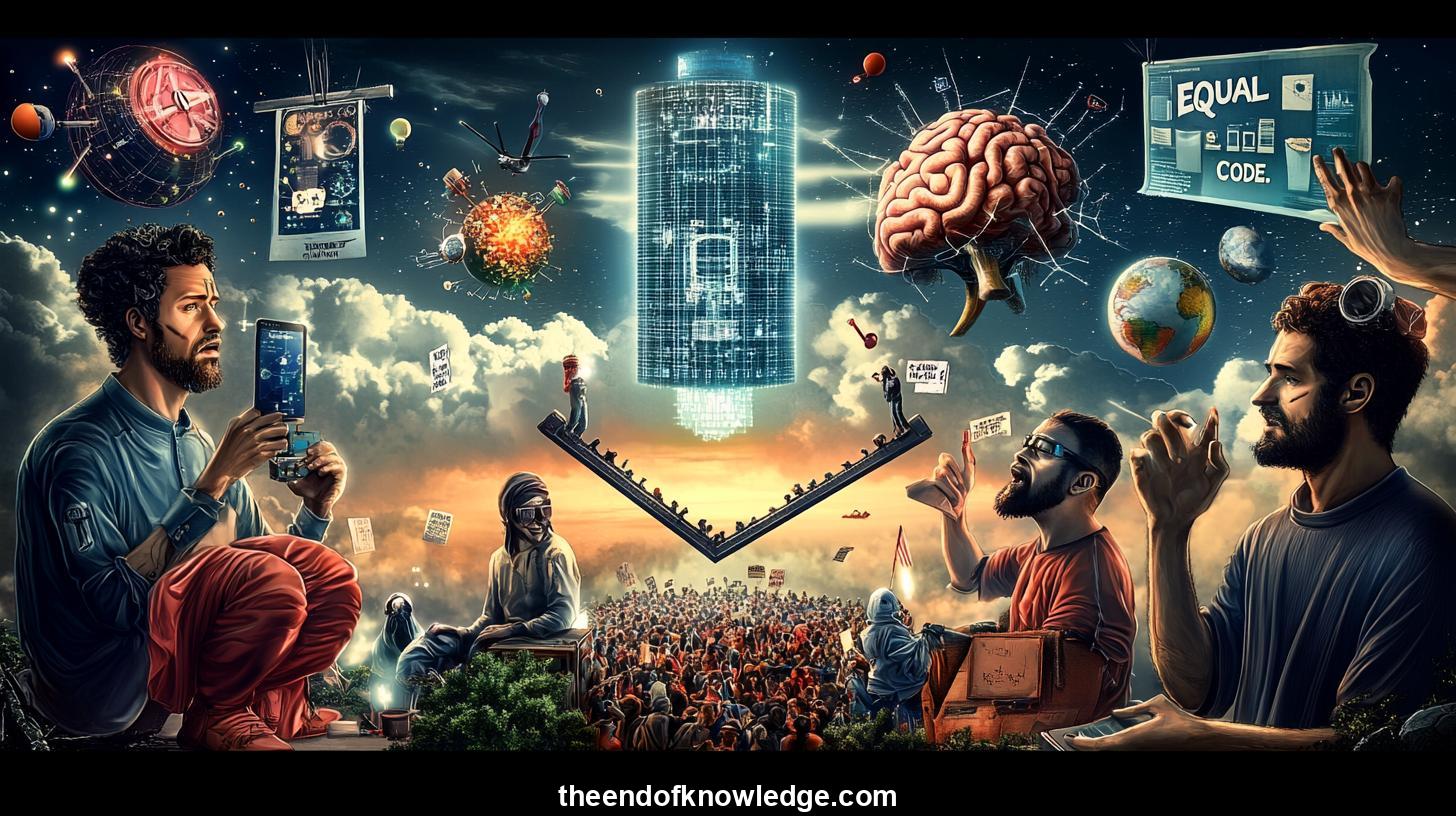 >
>
Concept Graph, Resume & KeyIdeas using DeepSeek R1 :
Resume:
The discussion revolves around the inevitability of Universal Basic Income (UBI) and the transformative impact of artificial intelligence (AI) on society. Participants debate whether UBI is a viable solution to economic disparities or a potential tool for control. The role of AI in reshaping employment and governance is explored, with concerns about job displacement and ethical implications. The conversation also touches on the need for new governance models and the challenges of adapting to rapid technological changes. Opinions are divided on whether UBI will alleviate inequality or exacerbate dependency, highlighting the complexity of integrating AI into societal structures.30 Key Ideas:
1.- UBI is debated as a potential solution to economic disparities or a control mechanism.
2.- AI's role in employment and governance is explored, raising concerns about job displacement.
3.- Ethical implications of AI and UBI are discussed, focusing on inequality and dependency.
4.- New governance models are proposed to address technological advancements.
5.- Participants highlight the complexity of integrating AI into societal structures.
6.- Opinions are divided on UBI's viability and its potential to alleviate inequality.
7.- The need for adaptive governance in the face of rapid technological change is emphasized.
8.- AI's impact on employment is a central theme, with concerns about workforce displacement.
9.- Ethical considerations in AI development and implementation are explored.
10.- The discussion underscores the challenges of balancing technological progress with societal needs.
11.- UBI is seen as a potential tool for addressing poverty but criticized for its economic feasibility.
12.- The role of AI in reshaping governance and decision-making processes is debated.
13.- Participants discuss the need for inclusive policies to address the impact of AI on employment.
14.- The ethical implications of AI in governance and decision-making are highlighted.
15.- The conversation emphasizes the importance of preparing societies for technological changes.
16.- UBI is viewed as a measure to prevent social unrest amid economic disparities.
17.- The discussion explores the potential of AI to create new employment opportunities.
18.- Participants debate the balance between technological progress and societal welfare.
19.- The need for robust ethical frameworks in AI development is stressed.
20.- The conversation concludes with a call for adaptive governance and inclusive policies.
21.- The role of education in preparing workers for an AI-driven economy is discussed.
22.- UBI is criticized for its potential to create dependency rather than fostering innovation.
23.- The impact of AI on traditional employment structures is a recurring theme.
24.- Participants explore the potential of AI to enhance decision-making in governance.
25.- The discussion highlights the need for global cooperation in addressing AI's societal impact.
26.- UBI is seen as a potential solution to inequality but faces implementation challenges.
27.- The ethical implications of AI in surveillance and data privacy are explored.
28.- Participants debate the role of governments in regulating AI technologies.
29.- The conversation emphasizes the importance of ethical considerations in AI development.
30.- The discussion concludes with a focus on the need for adaptive and inclusive policies.
Interviews by Plácido Doménech Espí & Guests - Knowledge Vault built byDavid Vivancos 2025